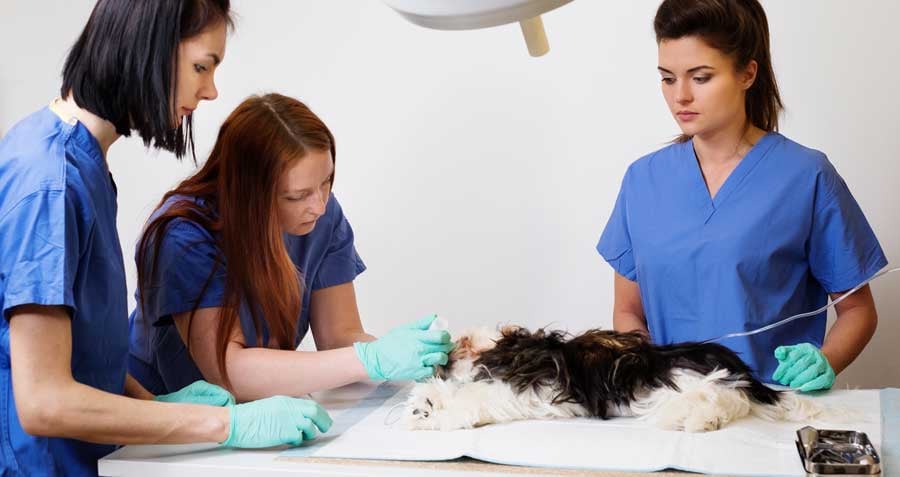Bringing your dog or cat in for a procedure can be nerve-wracking both for your pet and for you. Anesthesia is a central part of dental work and other veterinary procedures that require pets to stay still and calm.
The idea of putting your pet under anesthesia might make you uneasy. However, it's much safer than having your pet struggle and possibly injure themselves or the veterinary staff. Here's what you need to know about having your pet anesthetized for dental work.
Anesthesia and Your Dog or Cat
Many pet owners have a fear of anesthesia—after all, what if your furry family member never wakes up after surgery? And admittedly, there are some risks associated with anesthesia. For healthy dogs, however, the benefits outweigh the risks.
Why Anesthesia?
Veterinarians choose to anesthetize dogs and cats before dental procedures such as:
- Repairing teeth
- Cleaning
- Extractions
- Oral surgery
What Are the Risks?
A recent study by a board-certified anesthesiologist found that 99.85% of dogs who anesthetized recover just fine. In many instances, the dogs that do pass away as a result of anesthesia are elderly or very sick.
Factors that increase your dog's risks include:
- Sickness
- Emergency anesthesia
- Anesthesia for injuries
- Age
- Size (smaller dogs have a higher risk)
- Breed (brachycephalic dogs, such as Bulldogs and Pugs, face a greater risk)
It's also worth noting that most deaths occur after, not during, a procedure involving anesthesia. In other words, there's little fear that your dog won't wake up.
At Intermountain Pet Hospital, we monitor your pet's anesthesia levels throughout any procedure. Our vet techs watch over animals from the moment we administer the anesthesia to the time they recover. This helps keep your pet safe and also allows the doctor to fully concentrate on the dental cleaning.
Your Pet's Health is Important
In the end, the benefits of anesthesia outweigh its risks. If your dog or cat needs dental work and must go under, you can help make him or her more comfortable afterward. It's important to keep your pet warm after any surgery and to give him or her a calm, quiet environment in which to recover.
Intermountain Pet Hospital can help you prepare your pet for dental procedures and provide detailed information about the recovery process. We understand the anxieties that pet owners may have regarding medical procedures and will do everything we can to put your mind at ease. If you have concerns about your pet's health or any questions about anesthesia, contact us at any time.

